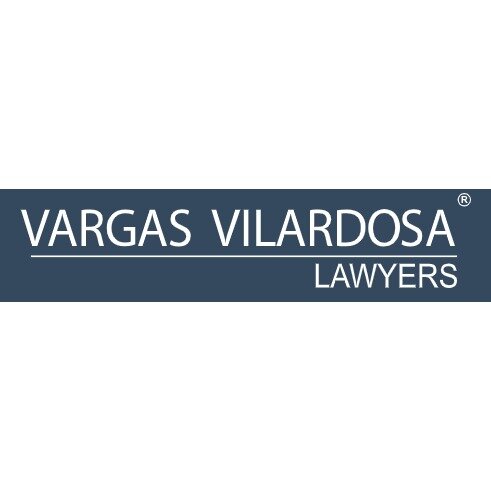Best Tax Increment Financing Lawyers in Zaragoza
Share your needs with us, get contacted by law firms.
Free. Takes 2 min.
List of the best lawyers in Zaragoza, Spain
About Tax Increment Financing Law in Zaragoza, Spain
Tax Increment Financing (TIF) is a financial tool used by municipalities across Spain, including Zaragoza, to stimulate economic development in designated areas that need revitalization. The concept involves capturing the future tax benefits of an increase in property values within a redevelopment area and using it to finance the current improvements necessary to spur that growth. In Zaragoza, TIF is part of the broader urban development framework and is used to encourage private investment in infrastructures, such as roads, utilities, and public spaces, thereby fostering urban renewal and economic growth.
Why You May Need a Lawyer
Navigating Tax Increment Financing can often be complex, particularly due to the myriad of laws and regulations involved. Here are some common situations where you may need legal assistance:
- Project Approval: Securing the necessary permissions from local authorities to start a TIF-funded project is a common scenario where legal aid is beneficial.
- Contract Negotiations: Whether you represent a developer or a public entity, having a lawyer can help in drafting and negotiating contracts related to TIF-funded projects.
- Compliance Issues: Ensuring compliance with local, regional, and national regulations concerning TIF projects often requires legal expertise.
- Dispute Resolution: Conflicts between stakeholders in TIF projects are not uncommon, and legal representation can be crucial in these situations.
- Financial Oversight: A lawyer can provide guidance on the financial management of TIF projects, including the allocation and tracking of funds.
Local Laws Overview
Zaragoza operates under Spanish national laws and regional Aragonese legislation regarding urban development and financing. Key aspects of these laws include:
- Designation of TIF Districts: Only certain areas can be designated as TIF districts, and these must meet specific criteria set by local government authorities.
- Public-Private Partnerships: TIF projects often involve collaboration between public entities and private developers, with specific regulatory frameworks guiding these partnerships.
- Financial Provisions: Local laws detail how funds are to be collected, managed, and allocated throughout the lifecycle of the TIF project.
- Transparency and Accountability: Measures are in place to ensure transparency and accountability, requiring public reporting and audits of TIF projects.
Frequently Asked Questions
What is Tax Increment Financing?
Tax Increment Financing is a method used by local governments to stimulate economic development by capturing the future tax benefits of increased property values to finance the costs of current improvements.
How does TIF work in Zaragoza?
In Zaragoza, TIF works under regulations that allow specific redevelopment areas to be established. Taxes from increased property values within these areas are reinvested into the infrastructure improvements of that area.
Who benefits from TIF projects?
TIF projects aim to benefit the community through economic growth, improved infrastructure, and enhanced public amenities. Property owners and developers also benefit from increased property values and new business opportunities.
Can anyone suggest a TIF district?
Generally, local authorities are responsible for proposing TIF districts, but community members and stakeholders can provide input and suggest areas in need of redevelopment.
What types of projects are funded by TIF?
TIF can fund a variety of projects, including infrastructure improvements, public facilities, housing developments, and other projects that promote economic growth.
Is private financing involved in TIF projects?
Yes, TIF projects often involve public-private partnerships where both public funds and private investments are used to finance developments.
What are the risks associated with TIF?
Risks include the possibility that increased tax revenues may not fully cover the cost of the project, potential displacement of residents, and the uncertain impact on future economic conditions.
How are TIF funds monitored?
TIF funds are monitored through public reporting requirements and audits to ensure transparency and accountability.
Do TIF projects affect existing property taxes?
Existing property taxes typically remain unchanged, but as property values increase within TIF districts, the tax increment is used to finance improvements, potentially benefitting property values citywide.
Where can I get more information about specific TIF projects in Zaragoza?
More information can often be obtained from local government offices, such as the Zaragoza City Council, and their respective departments responsible for urban development and planning.
Additional Resources
For more information and resources, you may consider contacting:
- Zaragoza City Council: The local government body responsible for urban development and financing.
- Aragonese Urban Planning and Development Office: Offering support and guidance on regional urban planning initiatives, including TIF projects.
- Spanish Ministry of Territorial Policy: Provides overarching guidelines and policies related to financing and urban development.
- Professional Associations: Local legal and financial associations can provide details about accredited professionals specializing in TIF.
Next Steps
If you require legal assistance with Tax Increment Financing in Zaragoza, here are some recommended steps:
- Research and Understand Your Needs: Familiarize yourself with the basics of TIF and clarify what specific legal assistance you require.
- Consult a Specialized Lawyer: Reach out to a lawyer with experience in tax increment financing and urban development law in Zaragoza.
- Gather Necessary Documentation: Assemble all relevant documents related to your project to discuss with your legal advisor.
- Schedule Initial Consultations: Meet with potential lawyers to discuss your case and determine the best fit for your needs.
- Engage a Legal Professional: Once you've chosen a lawyer, formally engage their services to begin working on your TIF-related legal matters.
Lawzana helps you find the best lawyers and law firms in Zaragoza through a curated and pre-screened list of qualified legal professionals. Our platform offers rankings and detailed profiles of attorneys and law firms, allowing you to compare based on practice areas, including Tax Increment Financing, experience, and client feedback.
Each profile includes a description of the firm's areas of practice, client reviews, team members and partners, year of establishment, spoken languages, office locations, contact information, social media presence, and any published articles or resources. Most firms on our platform speak English and are experienced in both local and international legal matters.
Get a quote from top-rated law firms in Zaragoza, Spain — quickly, securely, and without unnecessary hassle.
Disclaimer:
The information provided on this page is for general informational purposes only and does not constitute legal advice. While we strive to ensure the accuracy and relevance of the content, legal information may change over time, and interpretations of the law can vary. You should always consult with a qualified legal professional for advice specific to your situation.
We disclaim all liability for actions taken or not taken based on the content of this page. If you believe any information is incorrect or outdated, please contact us, and we will review and update it where appropriate.












